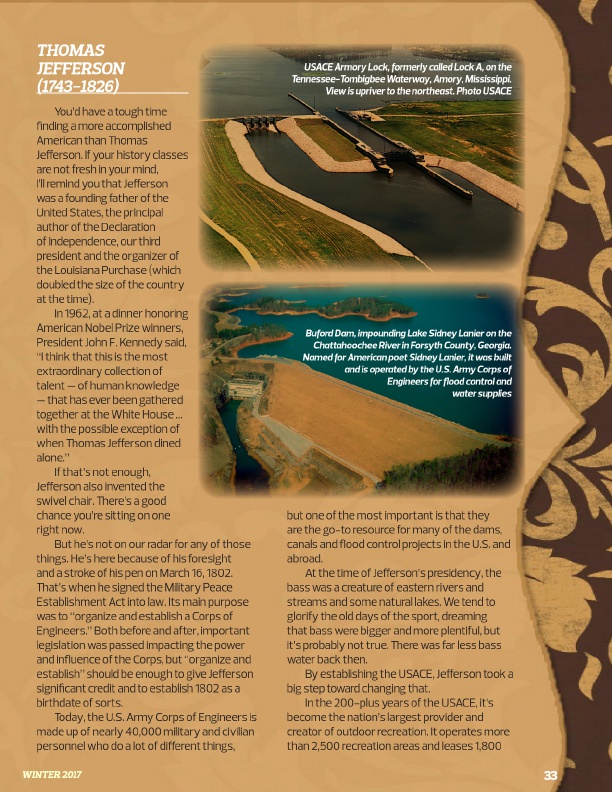
WINTER 2017
THOMAS JEFFERSON (1743-1826)
You’d have a tough time finding a more accomplished American than Thomas Jefferson. If your history classes are not fresh in your mind, I’ll remind you that Jefferson was a founding father of the United States, the principal author of the Declaration of Independence, our third president and the organizer of the Louisiana Purchase (which doubled the size of the country at the time).
In 1962, at a dinner honoring American Nobel Prize winners, President John F. Kennedy said, “I think that this is the most extraordinary collection of talent — of human knowledge — that has ever been gathered together at the White House … with the possible exception of when Thomas Jefferson dined alone.”
If that’s not enough, Jefferson also invented the swivel chair. There’s a good chance you’re sitting on one right now.
But he’s not on our radar for any of those things. He’s here because of his foresight and a stroke of his pen on March 16, 1802. That’s when he signed the Military Peace Establishment Act into law. Its main purpose was to “organize and establish a Corps of Engineers.” Both before and after, important legislation was passed impacting the power and influence of the Corps, but “organize and establish” should be enough to give Jefferson significant credit and to establish 1802 as a birthdate of sorts.
Today, the U.S. Army Corps of Engineers is made up of nearly 40,000 military and civilian personnel who do a lot of different things,
USACE Armory Lock, formerly called Lock A, on the Tennessee-Tombigbee Waterway, Amory, Mississippi.
View is upriver to the northeast. Photo USACE
Buford Dam, impounding Lake Sidney Lanier on the
Chattahoochee River in Forsyth County, Georgia. Named for American poet Sidney Lanier, it was built
and is operated by the U.S. Army Corps of
Engineers for flood control and
water supplies
but one of the most important is that they are the go-to resource for many of the dams, canals and flood control projects in the U.S. and abroad.
At the time of Jefferson’s presidency, the bass was a creature of eastern rivers and streams and some natural lakes. We tend to glorify the old days of the sport, dreaming that bass were bigger and more plentiful, but it’s probably not true. There was far less bass water back then.
By establishing the USACE, Jefferson took a big step toward changing that.
In the 200-plus years of the USACE, it’s become the nation’s largest provider and creator of outdoor recreation. It operates more than 2,500 recreation areas and leases 1,800
33